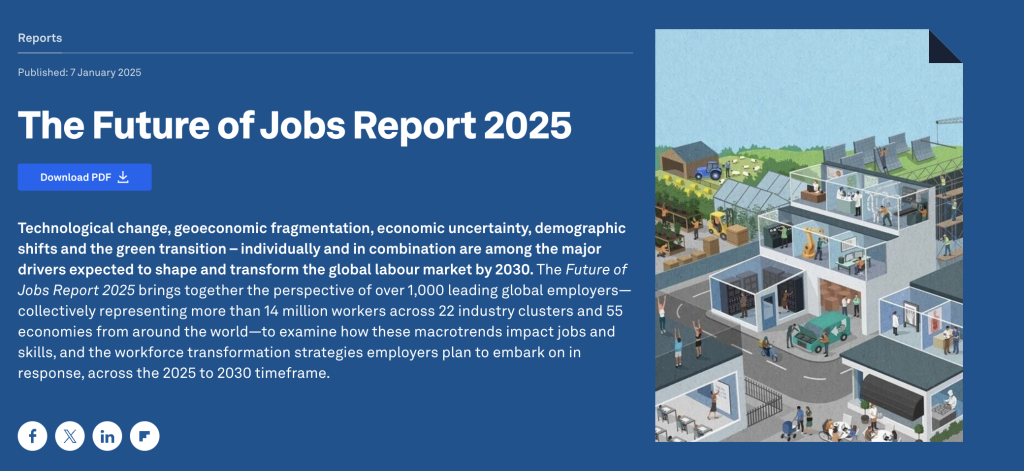By 2030, global trends are expected to create 170 million new jobs while displacing 92 million, resulting in a net gain of 78 million roles, according to the World Economic Forum’s Future of Jobs Report 2025. However, the study warns that a widening skills gap could hinder this transformation.

The report, based on data from over 1,000 companies, highlights that nearly 40% of required job skills will change, with 63% of employers identifying this gap as a major challenge. Both technological and human skills, such as creative thinking and flexibility, will be critical in the evolving job market.
AI, big data, and cybersecurity are among the fastest-growing skill areas. At the same time, roles in care, education, and essential services are set to see significant growth, driven by demographic trends and rising demand. However, jobs like graphic designers and cashiers are declining as generative AI and automation reshape industries.
The report reveals that 59% of the global workforce will require upskilling by 2030, but at least 11%—equivalent to 120 million workers—may not receive it, leaving them at risk of job loss.
Till Leopold, head of work, wages, and job creation at the World Economic Forum, told WAM, “Trends such as generative AI are transforming industries, creating new opportunities but also risks. Businesses and governments must collaborate to invest in skills and build resilient workforces.”
AI is expected to play a major role, with 77% of employers planning to upskill their staff in response to automation. However, 41% of companies also plan workforce reductions as certain tasks become automated. Many are looking to redeploy affected staff into new roles to mitigate the impact.
Economic factors, such as inflation and slower growth, are also influencing job markets, with six million jobs projected to be displaced globally by 2030. Meanwhile, geopolitical tensions and demographic shifts continue to shape labor demands, increasing the need for talent management and teaching skills.
The report underscores the urgency for governments, businesses, and workers to address these challenges and build a workforce equipped for the future.

Leave a Reply